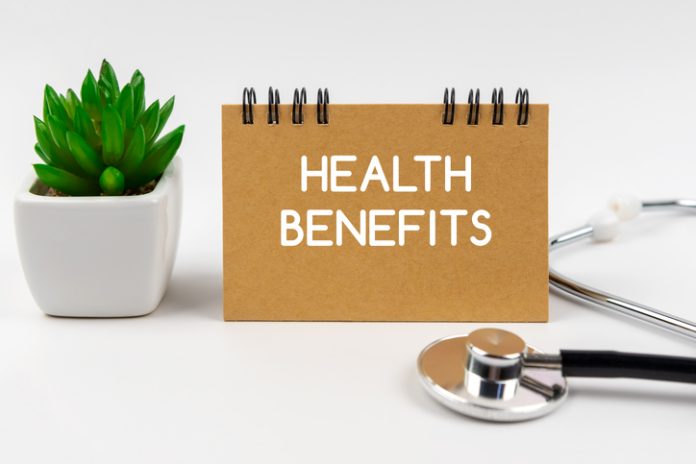President Joe Biden announced his decision to withdraw from consideration as a candidate for president, voicing his support for Vice President Kamala Harris to be nominated by the Democratic Party instead.
As Biden’s time as president winds down, distinctions are drawn between the policies his administration enacted and those implemented during the term of his predecessor and the man running to succeed him, former President Donald Trump.
One area of contrast between Biden, Harris, and Trump is their approach to health care in the United States. While many Trump reforms were rolled back, the Biden administration left the creation of Individual Coverage Health Care Arrangements (ICHRAs) alone. The common ground was recently noted by Politico, in an article titled, “The Trump policy Biden won’t kill.”
“ICHRAs have bipartisan appeal,” said Brian Blase, president of the Paragon Health Institute. “Republicans like that they give greater flexibility and control to employers and employees, and Democrats like that people can use them toward the purchase of Affordable Care Plan (ACA)-compliant plans. Thus, ICHRAs have increased the number of people with ACA individual market coverage.”
Potential for ICHRAs
ICHRAs are not for everyone, but they fulfill a need experienced by some people, says Joshua Archambault, a senior fellow in health care policy at the Pioneer Institute.
“The need that it’s filling is allowing employers more certainty in their budget for health insurance, but also allowing them to offer insurance to employees that maybe they historically have never offered them,” said Archambault. “They’re not for everybody, but they do serve the purposes of some people in some kinds of situations. They’re not short-term health insurance plans: this is just another arrangement. It could be a mom-and-pop restaurant that has never offered health insurance but are now able to offer it.”
ICHRAs have been beneficial to workers in industries like tourism and for employees who work part-time, says Archambault.
“An example of this would be an industry in a state where tourism is really big, and they have a lot of seasonal or part-time workers,” said Archambault. “Historically, they don’t get offered any assistance with health insurance, but this would allow restaurants, hotels, and others, for the first time, to offer some assistance to their employees to purchase health insurance.”
Gives Employees More Choices
Currently, the choices in the individual market for employees with ICHRAs are mostly limited to ACA-compliant plans, but ICHRAs might have broader appeal than an employer health plan, says Blase.
“ICHRAs give employees greater choice over their health insurance coverage, as many employees only receive options of one or two plans that are selected by their employer,” said Blase. “Employees have different needs and preferences and should have more options for their health insurance than they currently receive.”
Less Costly to Employers
Such arrangements are also less costly to businesses and easier to administer, says Blase.
“ICHRAs also make it much easier for employers to offer coverage,” said Blase. “Rather than having to deal with annual renewals, rate increases, participation requirements, and stress about picking the best plan, an employer offering ICHRAs simply sets the contribution requirements and hires a vendor to deal with the ICHRA implementation.”
ICHRAs may also be beneficial to the overall insurance market, says Archambault.
“They increase the number of enrollees in the individual market which can spread insurance risk, which stabilizes the market and can potentially keep premiums in line,” said Archambault.
Future of ICHRAs
Blase says he expects ICHRAs to expand if Trump is elected, and subsidies and government spending to grow under Harris.
“ICHRAs will be better positioned if the enhancements made to the ACA subsidies are permitted to expire after 2025,” said Blase. “This is because the enhanced subsidies make it much less likely that small employers decide to offer health insurance. If employees receive health insurance through work, they are generally not eligible for the subsidies. The enhanced subsidies are much less likely to expire if Harris is elected president than if Trump is elected president.
“Thus, the future of ICHRAs would likely be brighter under a second Trump term,” said Blase. “I can envision a follow-up ICHRA rule that would remedy some of the operational challenges employers face in offering ICHRAs.”
A Trump win would lead to the solidification of regulatory changes made under his previous administration.
“A lot of what President Trump would probably do, if he is back in office, is codifying what he did previously because his health reforms were in regulation,” said Archambault. “They weren’t in law. I think there would be efforts to codify price transparency and association health plans, putting them into law.”
Harris, Single-Payer?
If Harris wins the presidential election, Archambault says he expects a continuation of Biden’s approach to health care, as opposed to policies she expressed as a candidate running for the Democratic Party’s nomination in 2020.
“When Harris ran in the primary, she supported single-payer and ending private health insurance,” said Archambault. “I don’t think she’s going to return to those positions. It’s a radical departure from where President Biden has been, even though he’s been sympathetic to greater government involvement and is certainly different than what former President Trump has been talking about.”
Jesse Hathaway (Think@heartland.org) is a policy advisor to The Heartland Institute and writes from Columbus, Ohio.





















